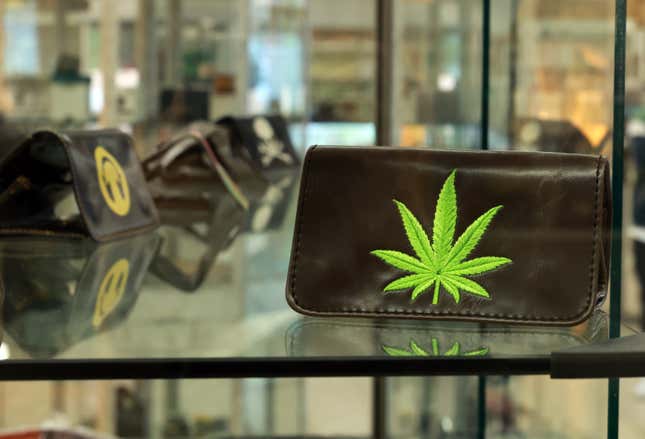
Cannabis stocks are smoking hot on reports that the U.S. Drug Enforcement Administration (DEA) will attempt to reclassify marijuana as a less dangerous drug.
Tilray Brands shares climbed as much as 28% on the news, while Canopy Growth shot up more than 33% and Curaleaf stock gained 18%. The MJ Pureplay 100 Index, a global cannabis industry tracker, gained 15% on Tuesday in its best intraday performance since last August, when the U.S. Department for Health and Human Services first asked the DEA to loosen rules on cannabis.
The AdvisorShares Pure U.S Cannabis ETF climbed 25% before it was halted for volatility in intraday trading. The Amplify Alternative Harvest ETF gained as much as 18%.
The Associated Press on Tuesday, citing five people familiar with the matter, confirmed that the DEA will propose changing marijuana’s classification from a Schedule I drug to a Schedule III drug. Other Schedule I drugs include heroin and LSD, while ketamine and anabolic steroids are some examples of Schedule III drugs.
The DEA’s proposal would recognize the medical benefits of marijuana and acknowledge that it has less potential for abuse than drugs like heroin, although it would not legalize it for recreational use. The proposal, once submitted, will be reviewed by the White House Office of Management and Budget; if it is signed off by that office, the DEA will take public comments on the proposal.
“Today’s decision by the DEA to reschedule cannabis to Schedule III is one of the most monumental developments that cannabis has seen in years and is a crucial step in undoing the harms caused by the failed and discriminatory War on Drugs,” Curaleaf CEO Matt Darin said in a statement shared with Quartz. “The future for the cannabis industry is real and we look forward to seeing what 2024 has in store.”
Federal drug policy has fallen behind as many states made the push to decriminalize or legalize some uses of cannabis. Thirty-eight states, three territories, and the District of Columbia have legalized medical marijuana. Twenty-four states, plus two territories and the District of Columbia, have allowed some recreational use of marijuana.
That’s helped push the marijuana industry to grow rapidly in recent years, reaching an estimated worth of nearly $30 billion, according to the Associated Press.
Alongside reducing some of the stigma behind marijuana, reclassifying the drug would remove some taxes that cannabis companies have to pay. Marijuana businesses can have a tax burden of 30% or more, according to some industry groups. Together, cannabis companies paid $1.8 billion more in federal taxes in 2022 than non-marijuana businesses would have paid, according to Whitney Economics.